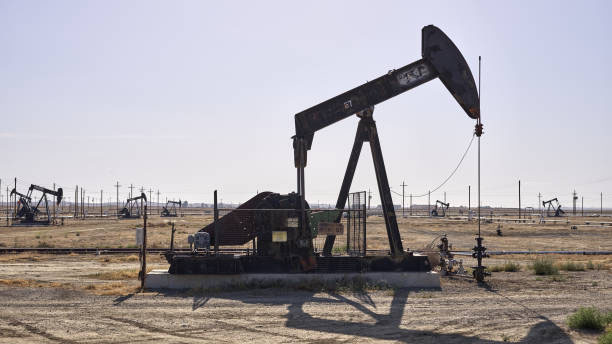Chevron CEO Defends Record Profits as ‘Modest Return’ Over Time
(Bloomberg) -- Chevron Chief Executive Officer Mike Wirth pushed back on claims by President Joe Biden that Big Oil’s record profits are being made on the back of the war in Ukraine and at the expense of the American people.
The industry’s highest-ever cash haul should not be viewed in isolation because only three years ago it was “losing billions of dollars as prices plummeted,” Wirth said in an episode of “The David Rubenstein Show: Peer-to-Peer Conversations” on Bloomberg Television.
The 10 top-performing stocks in the S&P 500 Index last year were energy companies, with traditional oil and gas producers dominating the list, despite a chorus of investors, political leaders and civil society groups calling for a transition to clean energy. Chevron, the second-largest US oil company, is on course to report $37 billion in profit for 2022, 40% higher than its previous record set in 2011, according to data compiled by Bloomberg. The stock gained 53% last year, compared with a 19% drop in the overall index.
 Chevron CEO Says Oil Supply Risk Will Ease When Ukraine War Ends
Chevron CEO Says Oil Supply Risk Will Ease When Ukraine War Ends
Biden spent much of last year criticizing the domestic oil industry and in October accused it of reaping a “windfall of war.” Democratic allies accused the industry of gouging consumers as gasoline prices reached a record high in 2022. “I disagree with that characterization,” Wirth said, adding that the price of oil and gas are set by the market, not producers.
His comments pick up on a growing frustration in the oil and gas industry that politicians, investors and consumers have focused too much on forcing large companies to reduce their carbon emissions while taking affordable and reliable energy for granted. As gasoline prices soared to a nationwide average of $5 a gallon last summer, Wirth found himself spending far more time than expected in Washington D.C. explaining the unintended consequences of policies being considered by the Biden administration.
“I do have to go to Washington,” Wirth said. “They're detailed discussions. And we need to help regulators understand the potential consequences of some of the things they consider.”
Wirth was born in Los Alamos, New Mexico, where his father worked in the National Laboratory. He studied chemical engineering at the University of Colorado in Boulder before joining Standard Oil of California, which became Chevron, as a design engineer. His first roles were in projects that never saw the light of day: oil shale before fracking took off, a facility in California to bring oil from offshore that was sold at a huge loss, and a project in Africa that never happened because of a civil war, he said.
 Mike Wirth during an interview with David Rubenstein.Photographer: Victor J. Blue/Bloomberg
Mike Wirth during an interview with David Rubenstein.Photographer: Victor J. Blue/Bloomberg
“They've lived through wars, the fall of the Soviet Union, terrorist attacks, financial crises.
Can the industry afford a windfall profits tax?
It was rescinded several years later, had collected a lot less revenue than was expected, and didn't result in more investment. So normally, if you want less of something, you tend to put more taxes on it. If we want more energy production, we want more supply to bring prices down, putting taxes on energy production's probably not a good idea.
We need to have a balanced approach to energy. And that means we have to focus on affordability, because affordable energy is really essential for economic prosperity. Reliable supply for national security, because energy security and national security are linked. And then protecting the environment. And I think as prices get high and it gets less affordable, you find people that are upset. Part of that is because we really haven't necessarily been able to find the right balance among those three.
What are you doing, for example, to transition yourself a bit to be a renewable company?
Is the war in Ukraine why oil companies are making big profits?
We're the last U.S. company that has any presence there. The sanctions were somewhat relieved but at the margin for a period of six months that will allow certain activities, primarily some crude, to flow from Venezuela to the U.S., which isn't happening today.
More stories like this are available on bloomberg.com
©2023 Bloomberg L.P.





